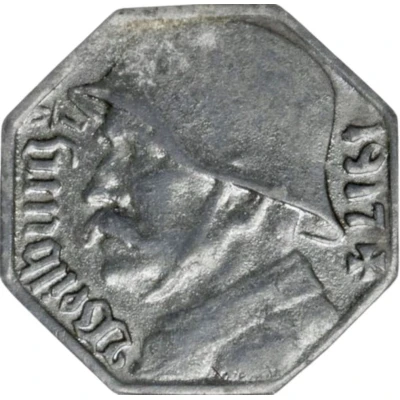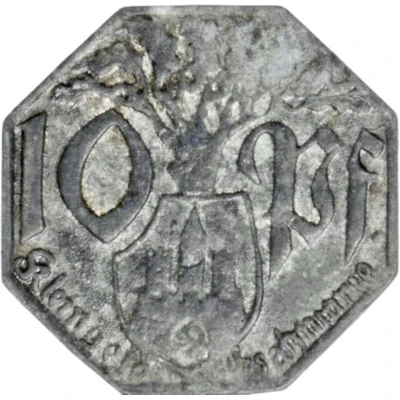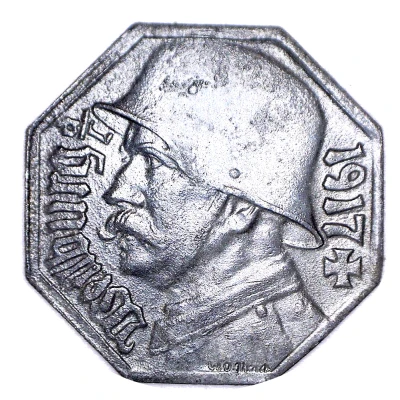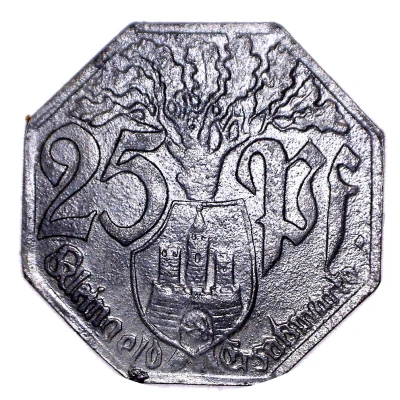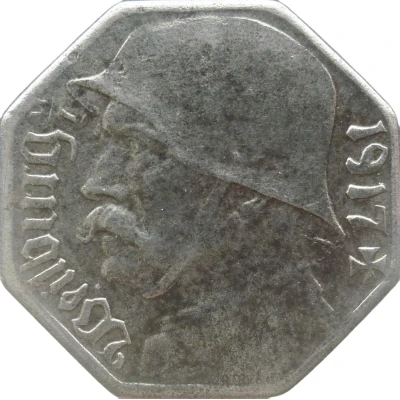
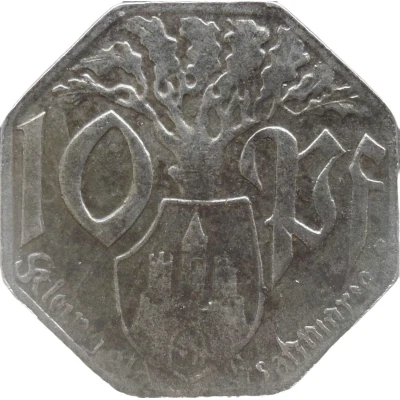

© Willem63 (CC BY-NC-SA)
10 Pfennigs - Weilburg an der Lahn
1917 year| Iron | 2.6 g | 20.8 mm |
| Issuer | City of Weilburg (Prussian province of Hesse-Nassau) |
|---|---|
| Emperor | William II (Wilhelm II) (1888-1918) |
| Type | Standard circulation coin |
| Year | 1917 |
| Value | 10 Pfennigs (10 Pfennige) (0.10) |
| Currency | Mark (1914-1924) |
| Composition | Iron |
| Weight | 2.6 g |
| Diameter | 20.8 mm |
| Thickness | 1.1 mm |
| Shape | Octagonal (8-sided) |
| Technique | Milled |
| Orientation | Medal alignment ↑↑ |
| Demonetized | Yes |
| Updated | 2024-10-04 |
| Numista | N#40540 |
|---|---|
| Rarity index | 76% |
Reverse
Legend at bottom corners, denomination divided by oak tree with Coat of Arm at bottom of tree.
Script: Latin (Fraktur blackletter)
Lettering:
10 Pf.
Kleingeld Ersatzmarke
Lettering (regular font):
10 Pf.
Kleingeld Ersatzmarke
Edge
Plain
Comment
Issuing body: [Stadt, Hessen-Nassau].Interesting fact
One interesting fact about the 10 Pfennigs - Weilburg an der Lahn 1917 coin is that it was issued during a time of economic turmoil in Germany. The country was experiencing hyperinflation, and the value of the German mark was plummeting. In response, the government introduced a new currency, the "Notgeld," which included coins like the 10 Pfennigs - Weilburg an der Lahn 1917. These coins were made of iron, a cheaper alternative to traditional metals like silver or gold, and were designed to be used as small change. Despite their humble origins, these coins have become sought-after collectibles among numismatists today.
